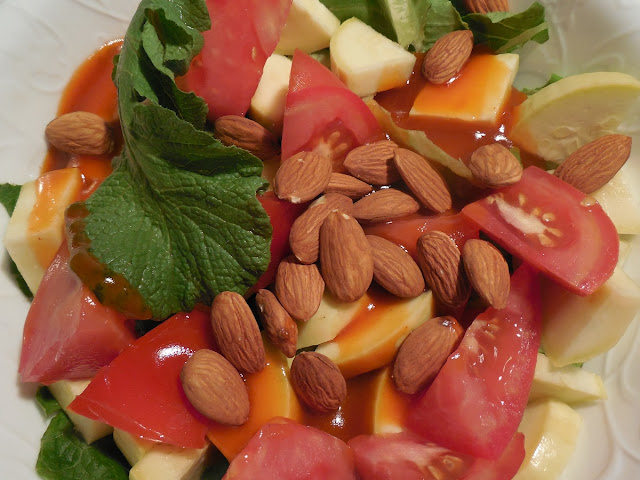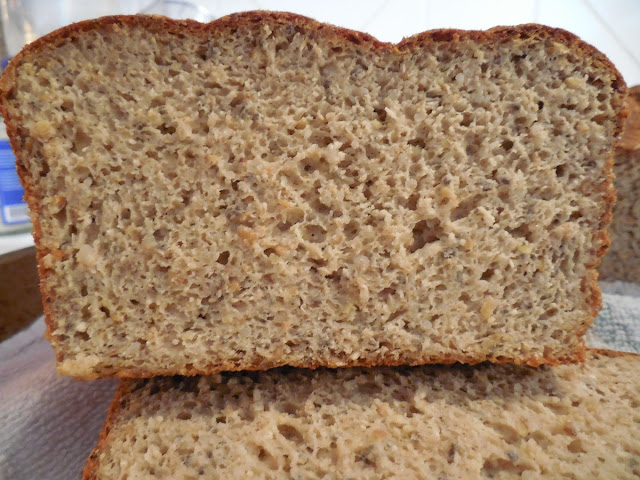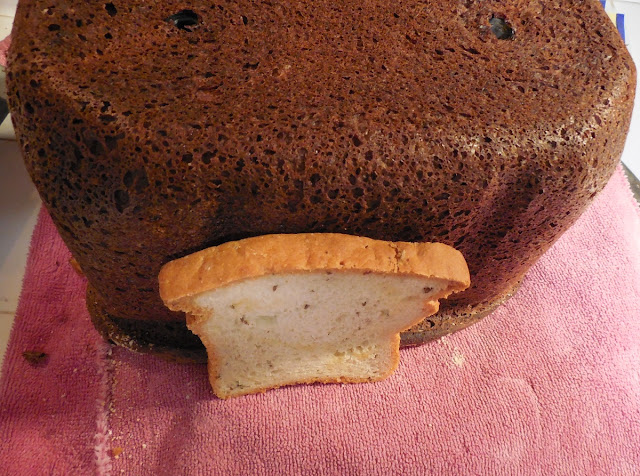What Is a Superfood?
 |
Photo by Ella Olsson from Pexels
|
I get so tired of frankly uninformative articles like this about superfoods. I only consider 3 of them to be superfoods (ginger, seaweed, wild mushrooms, and maybe turmeric). Isn't it suspicious that so many such "guides" have everyday and easy to find items? But it’s not the ease with which you can find a food that makes it not-super, it’s the years of breeding. By the time you've bred a food so it's large, its skin is thin, or it doesn't crush on shipping, have you considered what happened to its nutrition? A superfood isn’t bred for maximum market value. That may be the only central quality of a superfood. It’s usually rare, or has a very strong taste, or is a nutritious by product of some other food. To illustrate, here are a few examples to start out:
Royal Jelly – There will never be enough supply of this for mass marketing, nor will we be able to control its quality really ever, it comes directly from nature and provides nutrition we don’t normally find.
Whey Protein – Byproduct of cheese making, often highly refined and lactose free, as well as casein free. Despite this, it provides concentrated, easy to digest protein for everyone except the allergic.
Bitter Gourd/Melon – Yes it’s really bitter. It will never achieve comfort food status like mac and cheese, however, its strangeness protects it from too much breeding experimentation. Its nutrition can be trusted to be direct from nature, unspoiled by human agendas. If you can find a tasty recipe for it.
Some say that because these foods are hard to find (except whey protein nowadays, but in the 1980s, whey protein was an unusual food)… that they are fad foods and you shouldn’t be bothered with them. They used to say the same thing about carrot juice. Nowadays we say carrot juice? That has way too much sugar, drink celery juice, or pomegranate juice. Opinions about what’s good for you will always evolve. What’s important is to ask yourself if something is working for you, if it’s helping or not.
If I can encourage just one good habit in my readers, it would be, look at foods in terms of how far it is from the way it naturally grows without human intervention. Is it modified by humans with the intention of increasing nutrition? Or just increasing market value? Some foods achieve superfood status due to rarity and exceptional nutrition. I don't think they're fads.
Still, Celiac is an illness that causes a person’s body to be unable to absorb nutrition, so I’d expect gluten free labeling to include “nutritious” claims as well. And I’d think it would lead to laws permitting gluten free food makers to add vitamins to gluten free foods. I mean OK, it’s chemicals, but why not spray some cookies with the same stuff you spray on Total Cereal? I’m pretty sure nobody would notice the flavor. I’m not saying it’s the perfect solution, I’m just wondering why the food industry isn’t doing something blatantly obvious. If you are OK with tapioca and rice flour cookies, you are going to be OK with it if they spray some vitamins on it, I’m guessing. As long as it tastes good.
Is this a foolish thought? Let me know in comments.
I asked around why Ener-G
Tapioca Loaf isn’t called bread and I was told that it’s
because they can’t call it bread unless they DO NOT add vitamins to
the refined flour, but they also can’t call anything bread if it’s
a flour other than wheat flour, so they have to call it a Loaf. In
other words, you can call it bread if you don’t enrich it, and use
any flour. Or if you enrich wheat flour, but that’s all. If you
use GF flour and you enrich it, both, then you can’t call it bread.
Mind blown. I’ve been thinking about it ever since. Seems like
the laws need to change. That law seems literally harmful to people
with Celiac. But which law is it? I honestly haven't actually found it. I trust the person who told me this, but I feel like it needs more research to find the actual law.
Superfood Criteria
Here are some criteria for superfoods to consider:
- A superfood has not been bred
extensively for market value. It’s not enlarged, made more bland,
made prettier, had its skin thinned, in the case of berries, it
hasn’t been made “tougher” so it won’t be crushed during
shipping. In short, it evolved for its own best advantage in nature,
full of all the antinutrients or antioxidants it ever had.
- The supply of superfoods is usually limited by nature. Royal jelly will be a small part of what bees produce, mushrooms only appear after a rain, unusual fruits are only available in certain months from ethnic food stores, or possibly frozen.
- Superfoods are nutrition
packed. Without this criteria, the only other reason might be, because, like ginger it has a medicinal effect (anti-inflammatory). Most superfoods provide nutrients that are not common and help fulfill the "varied diet" requirement that we're all encouraged to strive for. You don't need to eat lots of it or go broke with it, just don't skip it entirely.
- Some say a superfood must be high on the ORAC list (must be high in antioxidants). But a lot of foods aren't on that list, or haven't been tested or may never be. And nutrition doesn't begin and end with antioxidants.
Superfoods I Enjoy Sometimes
Amla - Often available frozen at Indian food stores. Tart goodness straight from the freezer, or you can add it to stewed apples to give them extra tartness.
Nutritional Yeast – I have to buy the not fortified type, because I’m allergic to the folic acid they add to the fortified varieties. I discovered almost all of this comes from Estonia. Who knew?
Kombu – Seaweed you can buy from Japan, usually imported, break off a piece and add it to soups and allow to soften. Texture is like pasta, very mild sea flavor. High in iodine and minerals.
Okra – Loved the world over, often found in the frozen department. If not, then check ethnic stores. Look online for Ghana Okra Stew recipes, those are my favorite.
Goose – While we’re on the subject of not bred not market oriented foods, Goose is about as far as you can go and still have a poultry meat that sometimes shows up in supermarkets. It’s all dark meat, and I recommend brining it carefully before roasting, but you know Goose has not been factory farmed. It can be very pricey though. Meat you hunted for or fished for yourself would be about the only more super superfoods.
Fish bone stock – You can make this for yourself because most boxed fish stocks are pretty weak. I made a Red Snapper one the other day that was amazing, hopefully I can get the recipe together for you soon.
Ginger/Cinnamon/Cloves Tea - For this you have to chop at least two inches of fresh ginger root, no need to peel, just wash, add a cinnamon curl, and several whole cloves… use a saucepan, and about a quart or less of water, allow to come to a rolling boil, halfway cover and boil for 3 min. You can strain, sweeten slightly, and drink a mugful, but add more water and boil again. You can boil it again like that at least 4-5 times before it loses strength. It will produce instant full body sweat, and is great for winter chills. That’s the most super tea I know, once you try it you won’t doubt that there are superfoods in the world.
Broken Cell Wall Chlorella – This breaks the rule that it has to come from nature. I know. But the reason I break that rule in this case is, this product of Japan is a weak chelator and we have unscrupulous politicians who leave lead in the water in poor neighborhoods, sometimes. It’s debatable if chlorophyll from all green leafy vegetables will work just as well. But since my arthritis is triggered by spinach, this superfood stays on the list. Additionally, eating so much rice puts me at risk of arsenic exposure, taking some chlorophyll pills each day can give me the runs, but Chlorella doesn’t.
No Agenda
So because I’m once again talking of unfamiliar and rare foods which have in the past been called fads, I feel the need to remind my audience that I do not have a financial interest in any of this. I just want to share with you what I’ve learned, what I’m doing, and I hope it helps.
If you have favorite nutrition-packed foods that you like to eat, please feel free to share, I promise not to judge whether or not they fit my definition of superfood. We all should feel good about our diet. Of course, I won’t accept suggestions that are not gluten free, so don’t be disappointed if your suggestion doesn’t appear, it probably means I consider it risky for people with Celiac. Nothing personal.
Pandemic Note - Please Serve Others
We're still in the middle of a pandemic and I want to remind everyone to pray for and help those who are grieving or have suffered other losses. The MLK day of service is next Monday, if you can't risk going out yet, then please consider giving to the charity of your choice. https://americorps.gov/newsroom/events/mlk-day




